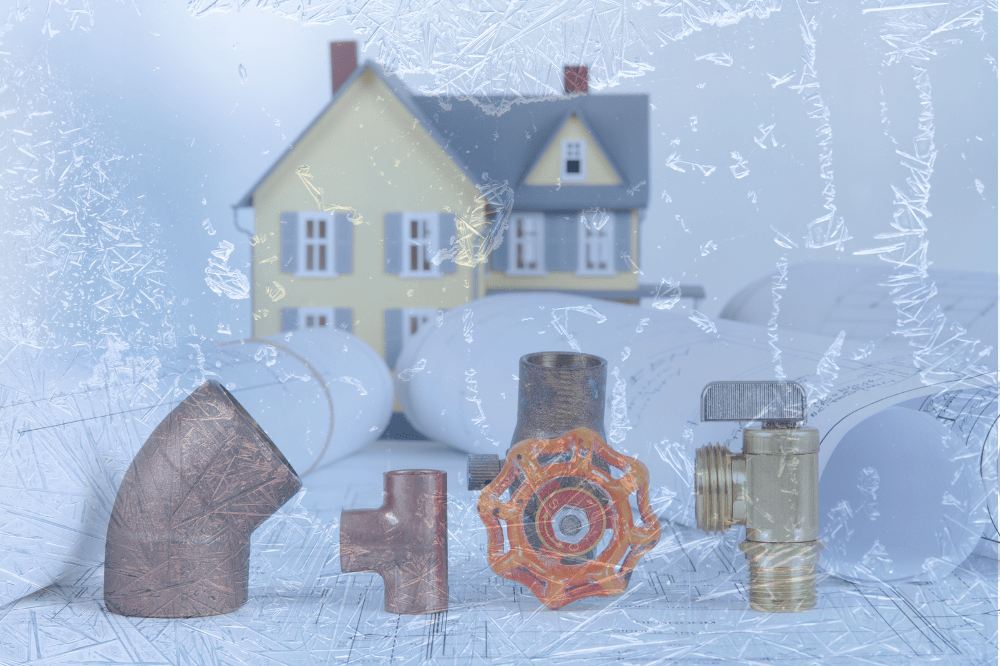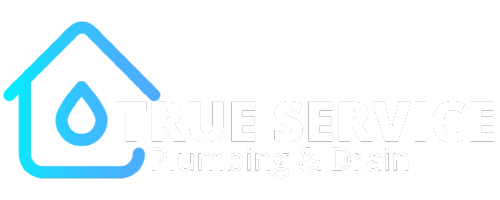Preventing winter plumbing issues is crucial to keeping your home’s pipes running smoothly all year round. Winter may be a great time to do some some work around the house, but ignoring these issues could lead to costly repairs. Make sure to address any plumbing problems before they escalate.
So here are some things you can do now that will help prevent winter plumbing issues:
Fixing Plumbing Leaks Before They Worsen
Leaks are a common problem in the winter. This is often due to water pipes being dormant for months. They will experience a sudden pressure change when you turn on the faucet. This can cause cracks and leaks.
Leaks can lead to many problems, including:
- Damage to your home’s foundation or walls if the leak is not caught early enough.
- Mold and mildew growth if there is standing water in your home’s basement or crawlspace. A leaky pipe or burst pipe connection will often allow sewage into these areas of your home. This leakage is what prompts the mold growth. Mold spores can also enter through heating vents. They will continue to grow inside those vents throughout the year. Requiring the help of professionals who specialize in such work to remove (and even then it’s best not let them sit open like this).
- Flooding due to excessive water entering through broken pipes. This could result from either an overabundance of snow melting off roofs during warmer months or heavy rains causing breakages within drain systems. This excess water often seeps back into homes due to defective plumbing installations. Either way, it’s very expensive when compared to using preventative measures.
Mold is a fungus that grows in moist areas (like basements & crawl spaces). It can enter your home via heating vents located near where you keep your furnace/air conditioner unit. It’s rare to find mold growing within these environments, unless there is some form of water damage present; it isn’t impossible!
If this is the case then it’s best to seek out professional help as soon as possible. There are many health risks associated with mold exposure. These include allergies, respiratory problems such as asthma and lung cancer (which is among the most common forms of cancer diagnosed).
Preventing and Thawing Frozen Pipes
When it comes to frozen pipes, you can either be proactive or reactive. If you want to avoid having to deal with the cost of fixing a pipe burst or other water damage, then follow these tips:
- First, make sure to insulate those pipes. They’ll thank you for it, trust me. Dress them in a cozy sweater, if you will.
- Next, keep the water flowing. A little drip from the faucet can go a long way in preventing pipes from freezing solid.
- And lastly, give your thermostat a little love and keep it at a consistent temperature.
But let’s say, despite all your efforts, you wake up one day to find your pipes have frozen solid. Don’t panic! Just because they’re frozen, doesn’t mean they’re destroyed.
Keep the faucet open and use a hair dryer, or a heating pad wrapped around the pipe to gently thaw it out. And please, please, please avoid using open flames or portable heaters near pipes.
That’s just asking for trouble. With these tips, you’ll be well on your way to avoiding costly repairs and keeping your plumbing happy and healthy all winter long.
Avoiding Sewer Line Damage
Sewer line damage may not happen as often as other plumbing issues, but it can be serious. One of the main causes of sewer line damage is when tree roots grow into the pipes.
This can cause sewage to back up into your home. It can also occur from using too many chemicals on your lawn or leaving grass clippings near your house.
Another problem with sewer line leaks is that raw sewage can seep into your home through cracks in the foundation walls and floors. This is especially prominent during heavy rain or snow melting.
Sewer line damage can go unnoticed until it starts to smell bad, at which point someone may require medical attention due to exposure!
It’s also important to note that any kind of wastewater leakage, whether it’s clean or dirty, poses health risks. That’s why it’s important to contact a professional plumber to fix your sewer lines and prevent further damage.
Water Heater Maintenance in Winter
A water heater is not designed to work in freezing temperatures, even if you live in a cold climate. In fact, most water heaters can freeze at any time of year, which means that as long as your home has had a chance to get cold enough for the temperature outside to drop below zero degrees Fahrenheit (or -18 degrees Celsius), it is possible that your water heater has started to freeze up.
If there’s any good news here, it’s that the likelihood of this happening isn’t very high. In fact, only 5% of homes have experienced frozen plumbing due to low temperatures in recent years—meaning that 95% do not have this issue (yet).
That said, if your basement is particularly chilly and exposed or if you keep your household appliances downstairs or near windows where they could be exposed to extreme temperatures during winter months (which are generally shorter than summer months), then there’s a greater chance that something could go wrong with them when they’re exposed outdoors (or indoors) longer than usual.
If you have a septic tank, it is important that the leach lines are not clogged with dirt or debris. If they are, then the waste will not be able to drain out of your home properly and could potentially back up into your plumbing system! A plumber can help check this problem out and make sure everything is flowing smoothly.
Improving Poor Water Pressure
Poor water pressure is a common problem during the winter months. It’s easy to attribute low water flow to a faucet or shower head that’s clogged, but there are other causes that can be much more serious and costlier—like frozen pipes and burst main lines, which can lead to major flooding in your home. If you’re experiencing poor water pressure at all times of the year, call a plumber immediately.
To check if your home has low pressure without waiting for winter, simply turn off all faucets in your home and then open each one individually with no running water present (this will cause it to “purge” any air from the line).
Then quickly turn on each faucet: if any of them have less than 30 pounds per square inch (PSI) of flow, this indicates that there’s probably an issue with either your plumbing or a major leak somewhere inside the house.
If you do have low water pressure, there are a few things you can do to improve it. First and foremost, check your home’s main water shut-off valve located near the street—if it’s turned on, then someone may have accidentally turned it off while working on your property.
Next, check for any leaks in the pipes within your home (this could be due to a faulty faucet or shower head). If everything checks out and you’re still experiencing issues with low water pressure, call a plumber immediately.
Improving Water Quality
One of the biggest issues that can occur during the winter is having poor water quality. This could lead to health problems, as well as damage to your appliances and home.
Poor water quality can be caused by several factors, including:
- Water lines freezing and bursting
- Frozen water service lines or pipes in the house (or even under a concrete slab)
- Frozen sewer lines, which causes backups into homes and basements
- Frozen water pipes in the house, which can burst and cause a flood
There are a number of steps you can take to ensure that your home’s plumbing system is protected from freezing during the winter months.
– Ensure that your home has adequate insulation and ventilation.
– Run your fireplace regularly to prevent the chimney from freezing.
– Keep a heat pack in the basement in case of flooding.
– Keep an eye on pipes that run through unheated areas, such as crawl spaces or attics.
The next time you notice an issue with your plumbing, don’t ignore it. Winter is already hard enough! Call a plumber to handle repairs before the issue worsens.
You’ve probably heard this a million times before, but it’s worth saying again: If you notice any plumbing problems, don’t ignore them. Winter is already hard enough without having to deal with frozen pipes or a burst pipe in your basement.
Since plumbers are busy during the holidays and winter months, it’s important not to wait until an emergency situation arises before calling one. If your water heater isn’t working properly, reach out for help now so that repairs can be scheduled for when you need them most.
Or if there are cracks or leaks in your pipes, contact a professional immediately so they can be repaired before they cause more damage or become too expensive to fix later on down the road!
It’s also wise not to take any chances when dealing with heating issues during this time of year—especially if you have young children living in your home!
A cracked radiator could pose serious risks for them (and their health), so make sure everything is up-to-date and safe before turning on those heating systems at full blast again next fall—which will undoubtedly bring about more complications than usual depending on how cold this winter season turns out being!
Winter Plumbing: A Friendly Reminder
If you’re all set to take care of your plumbing, then have at it! Just remember that winter is a great time to get everything checked out before the summer months hit.
If you spot any problems with your system now, they can be fixed before they become worse problems later on.
The sooner you tackle plumbing problems, the better. This stays true any season of the year – but it’s especially true for winter.
Minor issues like a small crack on your water heater or unprotected piping may appear insignificant at first. But during a winter storm or a power outage, these issues can become serious rather fast. So stay vigilant!
Winter Plumbing Solutions with True Service Plumbing
Don’t let winter plumbing issues disrupt your daily routine. Trust the experts at True Service Plumbing to handle all your winter plumbing needs in the Toronto and GTA area.
Our team of licensed professionals are experienced in dealing with common winter plumbing issues such as leaks, frozen pipes, poor water pressure, poor water quality and more.
Don’t wait until it’s too late, if you suspect any issues with your winter plumbing contact us today, we will promptly diagnose and provide a solution to get your system running smoothly again.
At True Service Plumbing, we also offer a range of top-quality and energy-efficient equipment and appliances to upgrade your existing ones and save on your energy bills.
Trust us, True Service Plumbing to keep your home or business safe and comfortable all winter long. Contact us today!


